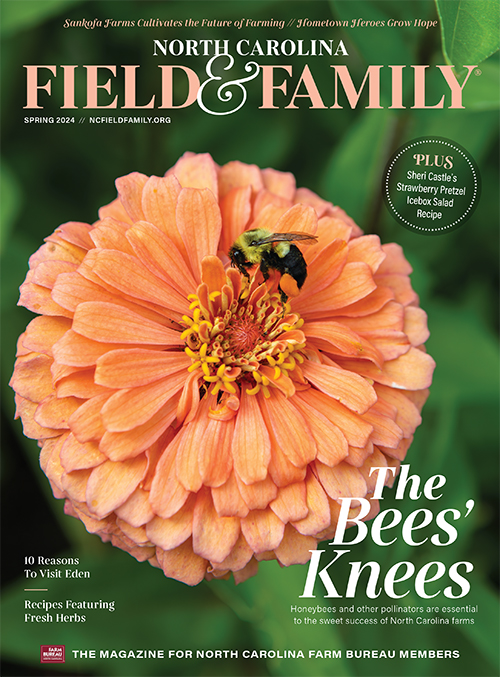Ask a Farmer: Why Is Crop Rotation Important?
We asked North Carolina farmer Ryan Cahoon about why crop rotation is important.
Hannah Lewis |We asked North Carolina farmer Ryan Cahoon about why crop rotation is important:
First, pest control. Insects can overwinter in the soil and crop residue from the previous crop, rehatching in the spring. That second generation of insects can develop resistance to insecticides, making them harder to kill and more destructive to the crop. Rotation allows me to use insecticides in a way that keeps insect populations down and decreases the chance of developing resistant insects. Rotating my crop allows me to have better control of pests and use fewer pesticides.
Second, weed control. Crop rotation allows me to use different herbicides with different modes of action and use fewer herbicides altogether to avoid resistance and better control weeds.
Finally, crop yield. Research shows a 25-bushel decrease in a corn crop that follows a corn crop, instead of following soybeans or another crop. This can happen for many reasons such as diseases, pests, weeds and fertility. Crop rotation is important for the health of both the crop and the land.

About the farmer: Ryan Cahoon works on his family’s row crop and cattle farm in the Fairfield community. He serves on the Tyrrell County Farm Bureau board and is a member of N.C. Farm Bureau’s LEAD Team.
See more: Ask a Farmer: How Have You Incorporated Technology on the Farm?


